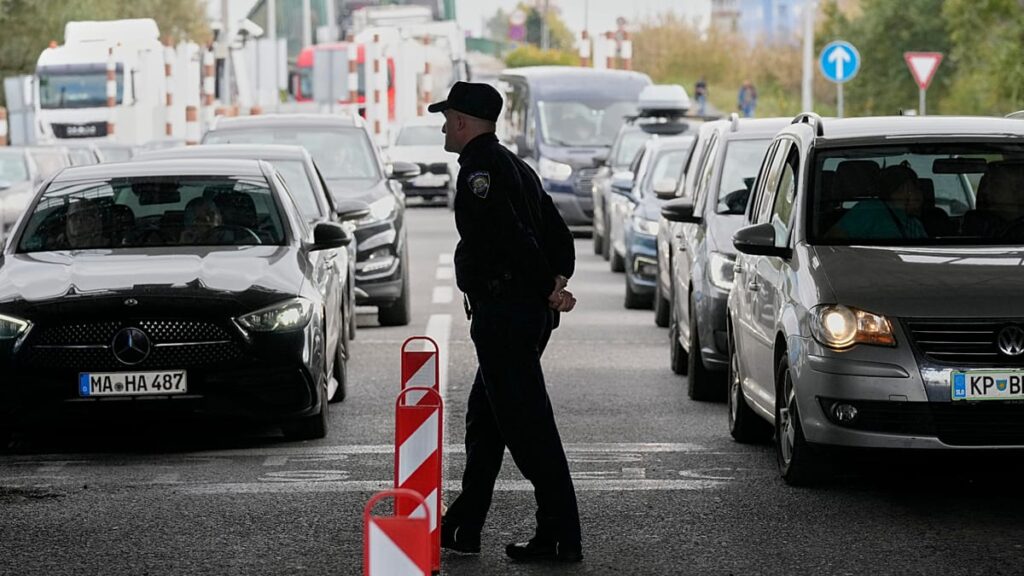The roll-out of the EU’s new Entry/Exit System (EES) for tourists at Dover has been delayed until 2026, according to port officials.
The digital border system was due to come into force at the Port of Dover for tourist traffic on Saturday, 1 November, but its introduction was ‘paused’ the day before.
The scheme is already live for ferry passengers in coaches, and was introduced on 12 October for coaches and freight.
Dover pushed back EES launch to avoid Christmas travel chaos
In a statement, authorities at the port said the introduction of the EES for tourists travelling in cars will now be pushed back to 2026.
“The Port of Dover is working closely with our French border agency partners to ensure a smooth introduction of the EU Entry/Exit System (EES) for tourist passengers in early 2026,” they said in a statement.
They added that they were taking advantage of the “opportunities offered by the gradual ramp-up period” in order to avoid “significant changes for passengers just before the busy end-of-year period”.
The EES is being rolled out gradually across EU borders to give countries time to make sure the new technology is installed and travellers are prepared.
Passengers should allow extra time for EES checks
Authorities say “significant progress” has been made to streamline new digital border checks and minimise disruption for travellers.
The EU’s new border check system requires third-party nationals, including British citizens, to have fingerprints and photos taken as part of efforts to bolster security in the bloc.
Since the implementation of EES for coach, freight and foot passengers in October, nearly 13,000 traveller profiles have been successfully created at Dover, they said.
The port has not yet given a specific date for the launch of the EES for tourist traffic.
“Passengers are advised to stay informed via updates from their ferry operator as the rollout approaches and to allow extra time for their journey during the transition period,” it added in the statement.
Currently, it takes port authorities around 60 seconds to process each car at the border.
With the EES in place for tourist traffic, this will mean passengers having to get out of their vehicles and register at dedicated electronic kiosks.
This could mean processing will be six times longer for cars, the Port of Dover has previously warned.
Read the full article here


